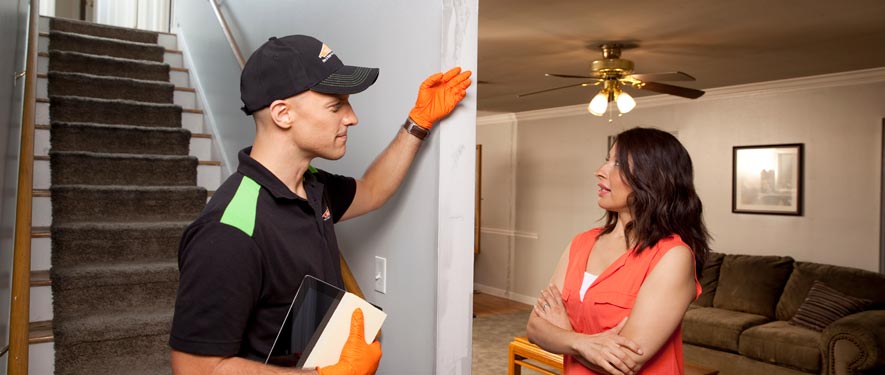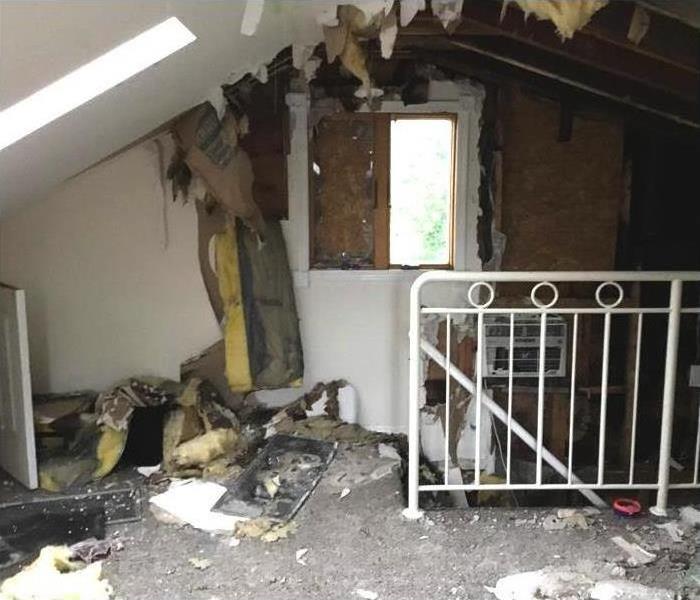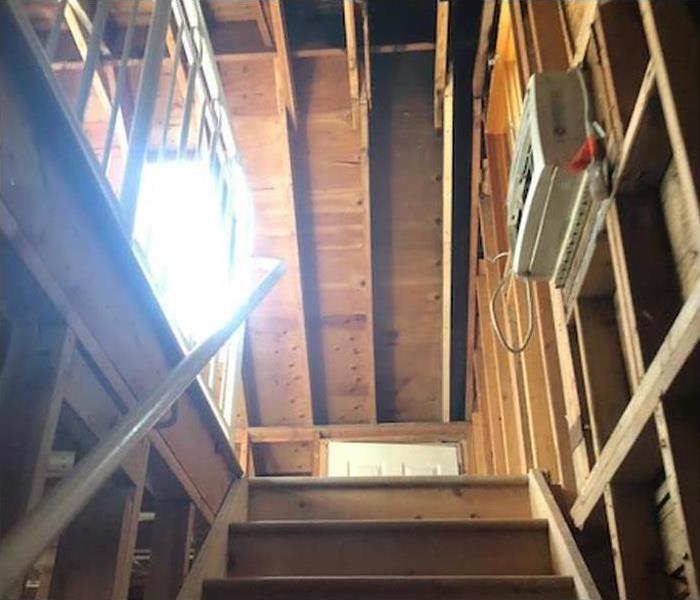
Fire Damage Restoration Process
If your residential or commercial property in Manhattan has experienced a fire, an emergency board up is one of the first steps you should take toward mitigation and restoration. SERVPRO of Central Manhattan is always here to help with board up services after a fire; key reasons to seek professional board up, are to protect your property from external elements that could cause further damage, prevent additional losses due to looting, make the fire cleanup process easier and protect you from liability and insurance coverage loss.
The fire in this home spread quickly, the firefighters used plenty of water for extinguishing, and the walls were soaked. SERVPRO strives to restore and not replace structural materials and possessions whenever possible. In this case, it was more prudent to tear out the damaged sheetrock in a controlled demolition to both mitigate secondary water damage and to help relieve the interior of the foul odors from the fire and the water. Many insurance companies welcome our expertise in minimizing costs but always doing what is necessary to complete the fire damage cleanup and restoration.
Have Questions About Fire, Smoke, or Soot Damage? Call Today – (212) 246-4148
Every fire damage event is a little different, and requires a unique solution, but the general process stays the same. The steps listed below illustrate our process for the “typical” fire damage emergency.
Step 1: Emergency Contact
The restoration process begins when you call us. Our representative will ask questions regarding the fire damage event that will help us respond immediately with the appropriate equipment and resources.
Step 2: Inspection and Fire Damage Assessment
We carefully inspect and test adjoining rooms of your property to determine the extent of the fire, smoke, and soot damage. This step is crucial to developing a plan of action.
Step 3: Immediate Board-Up and Roof-Tarp Service
Fire damage can often compromise windows, walls, and roofs. To maintain security and to protect against further damage, we can board up missing windows and walls and place tarps on damaged roofs.
Step 4: Water Removal and Drying (if water damage is present)
The water removal process begins almost immediately and removes the majority of the water. We then use dehumidifiers and air movers to remove the remaining water and complete the drying process.
Step 5: Removal of Smoke and Soot from All Surfaces
We use specialized equipment and techniques to remove smoke and soot from ceilings, walls, and other surfaces.
Step 6: Cleaning and Sanitizing
We clean, sanitize, and disinfect all of the restorable items and structures that were damaged by the fire. We use a variety of cleaning techniques to restore your belongings to pre-fire condition. We’re also trained to remove odors using industrial air scrubbers and fogging equipment.
Step 7: Restoration
Restoration is the final step—getting your home or business to its pre-fire condition. Restoration may involve minor repairs, such as replacing drywall, painting, and installing new carpet; or it may entail major repairs such as the reconstruction of various areas or rooms in a home or business.





 24/7 Emergency Service
24/7 Emergency Service




